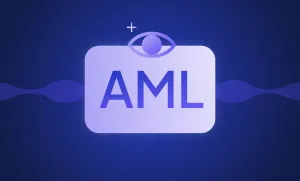Generative AI can do some incredible things, creating art, poetry, scripts and lifelike images of humans that don’t exist. It’s also powerful for creators, who can use these tools to create new content much faster and without needing specialist equipment.
ChatGPT and Podcastle are two tools that allow users to create a podcast using artificial intelligence (AI). With these tools, users have access to features such as automatic transcription of audio recordings, natural language processing capabilities, and streamlined editing processes.
Additionally, they provide support for multiple languages so your podcast can reach an international audience without any extra effort on your part. This article will explore how ChatGPT and Podcastle work together to help you create compelling podcasts quickly and easily with AI technology.
AI Generated Podcast Example
Want to hear what this sounds like in action? We've created a short podcast version of this blog for you to listen to using one of our 450+ AI voices:
Introduction to ChatGPT and Podcastle
What is ChatGPT?
ChatGPT is a revolutionary new platform that combines the power of chatbot technology and natural language processing to help companies improve their customer service. With its advanced capabilities, ChatGPT enables companies to create personalized conversations with customers while providing them with valuable insights into their preferences, interests, and needs.
What is Podcastle?
Podcastle is another popular AI-powered tool for creating podcasts. Like ChatGPT, Podcastle offers drag and drop functionality so that anyone can quickly assemble their episode's structure without any prior knowledge or experience in audio engineering. Additionally, its advanced algorithms can automatically adjust levels between different tracks so that they sound consistent across the entire episode.
How ChatGPT Generates Podcast Scripts
How does ChatGPT generate podcast scripts? To get our podcast episode script with ChatGPT, all we had to do was write this simple command:
“Please write a podcast script on how to lead a healthy lifestyle 1000 words”
Why do we write please? Cause you have to be polite even with the AI chatbots. And our experience has shown that the results are much better, when there is a “please” in front of the command. But back to the script.
With only one sentence, we got an entire script for a podcast episode ready! Here is what ChatGPT gave us:
Intro:
Welcome to the "Healthy Lifestyle" podcast, your guide to leading a happier, healthier, and more fulfilling life. In this episode, we'll be discussing the importance of a healthy lifestyle and sharing tips and tricks to help you make it a part of your daily routine.
Segment 1: The Importance of a Healthy Lifestyle
We all know that leading a healthy lifestyle is important, but why exactly is it so crucial? By maintaining a healthy lifestyle, we can reduce the risk of chronic diseases, increase our energy levels, and improve our overall quality of life. By making small changes to our daily habits, we can see a significant impact on our health in the long run.
Segment 2: Making Healthy Habits Stick
So how do we make healthy habits stick? The key is to start small and make gradual changes. Instead of trying to overhaul your entire lifestyle at once, try to focus on one thing at a time. This could be something as simple as drinking more water, eating more fruits and vegetables, or going for a daily walk.
Another important aspect of making healthy habits stick is to have a positive attitude. Remember, these changes are for your own benefit, and you'll see the results over time. It's also helpful to find a friend or family member who is also interested in leading a healthy lifestyle and make it a team effort.
Segment 3: Eating for Health
One of the most important aspects of a healthy lifestyle is maintaining a balanced diet. This doesn't mean you have to give up all of your favorite foods, but it does mean making smart choices about what you eat. Aim to eat a variety of colorful fruits and vegetables, whole grains, lean proteins, and healthy fats.
It's also important to pay attention to portion sizes. Use smaller plates and bowls, and try to eat slowly and mindfully. This will help you to avoid overeating and to feel satisfied with less food.
Segment 4: Getting Active
Physical activity is another essential component of a healthy lifestyle. Regular exercise can help to improve cardiovascular health, increase energy levels, and reduce stress. Aim to get at least 30 minutes of moderate-intensity exercise, such as brisk walking, every day.
If you're new to exercise, start slow and gradually increase the intensity and duration of your workouts. Mix it up with different activities, such as yoga, swimming, or weightlifting, to keep it interesting and challenging. And remember, any physical activity is better than none, so just get moving!
Segment 5: Taking Care of Your Mental Health
Mental health is just as important as physical health, and it's often overlooked. Taking care of your mental health can help to reduce stress, increase resilience, and improve your overall well-being.
There are many ways to take care of your mental health, including:
1) Meditation
2) Journaling
3) Spending time in nature
4) Connecting with loved ones
5) Pursuing hobbies and interests
It's important to find what works for you and to make time for self-care regularly.
Segment 6: Making Time for Sleep
Getting enough sleep is also critical for leading a healthy lifestyle. Lack of sleep can have negative effects on our physical and mental health, as well as our daily performance. Aim to get 7-9 hours of sleep per night and establish a consistent sleep routine. This could include winding down before bed with a relaxing activity, avoiding screens for at least an hour before bedtime, and keeping your sleep environment cool, dark, and quiet.
Outro:
In conclusion, leading a healthy lifestyle is essential for overall well-being and can be achieved
Create professional podcasts effortlessly using an AI podcast tool for innovative results.
Generate the Audio with Podcastle Revoice Tool
Now that our script is ready, it’s time to bring it to life with Podcastle’s Revoice feature. If you’re unfamiliar with Revoice, it simply uses the power of AI to create a digital copy of your voice. Once the copy is created, you can use it to generate endless amounts of audio without saying a word! In short, it makes the audio creation process easier and quicker.
So if you're interested in adding professional voiceover with Podcastle's Revoice tool, here are the 3 simple steps to follow to get your voice copied with AI!
1) Record Sample Sentences
Start by recording a short sample on the platform and start creating voiceovers instantly—no mic or extra software required. When recording yourself, try to minimise background noises and be in a quiet environment so that the tool can capture your voice flawlessly.
2) Leave it to AI
Once you finish the recording and submit it to Podcastle, you just need to sit back and let our AI do its magic. Within 24 hours, you'll get the digital copy of your voice and can start using it for your podcast episodes!
3) Generate Audio
To generate your first audio with your digital voice copy, go to Podcastle's Text Editor and paste your podcast script. In this case, you can paste the script we generated with ChatGPT. From the AI voice skins, choose yours and click Generate. That's it! Shortly, you'll have your AI generated podcast episode ready!
Pro tip: Consider using an AI music generator online to create custom intro, outro, or background music for an even more polished result.
The Benefits of Using ChatGPT and Podcastle for Podcast Production
Creating a podcast with ChatGPT and Podcastle can be incredibly beneficial because of the convenience, ease of use and cost-effectiveness associated with both platforms. Here are some of the main benefits of using the two AI-powered platforms for podcast production:
- Automation: Both ChatGPT and Podcastle allow users to automate the production process, which saves both time and money.
- Quality: The content quality of podcasts produced with either service is generally quite good, making them suitable for professional podcasting.
- Affordability: Both ChatGPT and Podcastle are very affordable, making them a great option for those looking to create podcasts without breaking the bank.
Creating a podcast with either of these services is an excellent choice for both amateur and experienced podcasters alike, as it offers a convenient, cost-effective way to produce high-quality podcasts in a short amount of time. So why not give it a try?
Other AI Tools Like ChatGPT
It’s safe to say that a ChatGPT podcast can save you loads of time, but it isn’t the only way you can create a podcast with AI. While it might be the most popular, many generative AI tools have popped up over the past few years, each bringing something unique to the table.
It's also fair if you grow tired of OpenAI’s tool, or maybe you want to try a free ChatGPT alternative! And if that's the case, here are a few other free AI tools for podcast research, outlining, and drafting.
1) Claude AI
Claude AI is an assistant created by Anthropic that provides thoughtful and nuanced responses to complex questions. While it's not made specifically for podcasts, this tool puts a big focus on creative text formats, with some suggesting its responses have a stronger human touch – so it might be a good fit if you want a unique and interesting writing style for your podcast.
The best part? You can upload a variety of document formats, like PDFs, Word docs, or Excel files. It then scans the content in these documents and uses the information however is most appropriate based on the specifics of your prompts.
2) Perplexity AI
Perplexity AI is a language model that can be customized and tuned for specific tasks, including podcast creation. What makes it unique is that it allows you to customize and train an AI language model on your own data related to your podcast. This creates a specialized AI assistant tailored to your podcast's specific subject matter and style.
Granted, that might require some technical expertise, or you might go through a small learning curve, but the end result is a laser-sharp model, capable of generating nuanced, on-brand content for your podcast.
3) Gemini
Gemini is Google's latest AI language model. It can understand different types of data like text, audio, or images, and is also capable of researching topics by analyzing various sources and generate detailed podcast scripts. But it can also help you with other podcasting ins and outs, like suggesting insightful questions based on your podcast guest's background.
Although, without a doubt, Gemini's biggest advantage is its direct connection to Google Search, giving it the ability to reliably fact-check its own outputs and reduce hallucinations or inaccuracies that you might find across other AI tools.
FAQs
What makes Podcastle Revoice Tool unique for podcast production?
Podcastle’s Revoice Tool is unique because it uses AI to create a digital copy of your voice, which can be used to generate endless amounts of audio without saying a word. This makes the podcast production process easier and faster.
Can Podcastle Revoice Tool be used with other AI language models besides ChatGPT?
Yes, Podcastle Revoice can be used with other AI language models in addition to ChatGPT. The process is the same: generate your script with any AI model, voice it with Podcastle's Revoice Tool, and share it with others!
How can I get the most out of using ChatGPT and Podcastle for podcast production?
The best way to get the most out of using ChatGPT and Podcastle for podcast production is to practice! Generate multiple scripts with different AI models, and try to perfect your audio creation process by experimenting with different settings in Podcastle's Revoice Tool. With enough practice, you'll be able to quickly create professional podcasts without breaking a sweat.
Are there any limitations to using ChatGPT and Podcastle for podcast production?
Generative AI podcasts may have some limitations when using ChatGPT and Podcastle for podcast production. For example, the AI-generated scripts may not always be accurate or consistent, so you should double check them before submitting them to Podcastle's Revoice Tool. Additionally, since AI-generated audio is still new, professional voiceover artists may not accept AI-generated scripts. Finally, the quality of the audio generated with Podcastle's Revoice Tool will depend on how well you recorded your sample sentences in the first step.








